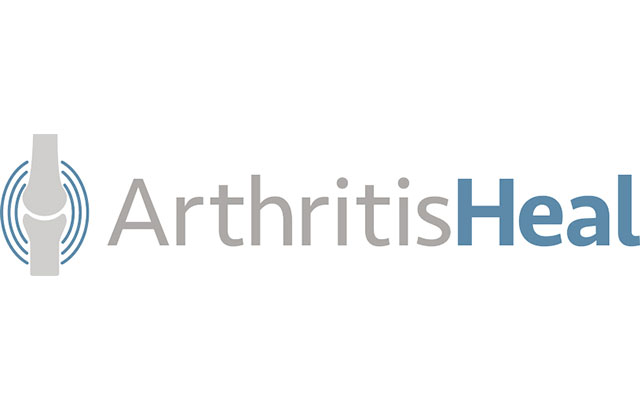QMUL researchers seek treatment for arthritis as part of new EU-funded project
Researchers from Queen Mary University of London are about to start work on a new EU-funded project to discover novel therapeutic targets for osteoarthritis and rheumatoid arthritis.

Arthritis Heal logo
Arthritis-related conditions are the number one cause of disability in the UK, affecting more than 10 million people. This has a massive impact on the economy with over 25 million working days lost every year to people with osteoarthritis (OA) and rheumatoid arthritis (RA), and a huge burden on the NHS (£10.2 billion in 2017; www.arthritisresearch.org).
Moreover, the quality of life of people with arthritis is dramatically reduced. Both OA and RA cause pain and joint deformity, with inflammation playing a large role in their pathogenesis. Current treatments for patients with arthritis offer relief from pain and swelling, but do not prevent the main cause of disability, which is cartilage damage. Thus, radical new approaches for treating arthritis are needed that can counter disease chronicity and repair joint function.
Researchers from the William Harvey Research Institute (WHRI) at Queen Mary University of London are about to embark on an exciting new EU-funded project called ArthritisHeal, whereby 7 universities and 2 companies, together with 8 associated partners, will train 12 young researchers to discover novel therapeutic targets for OA and RA. This research focuses on ‘pro-resolving lipids’, which include omega-3 derived ‘resolvins’ that are known to activate resolution pathways to switch off inflammation and repair damaged tissue. During the project both clinical samples and animal models will be used to study mode of action and verify clinically relevant lipids for the next generation of therapeutics for arthritis. The consortium of academic and industrial beneficiaries with leading expertise in rheumatology, lipidomics**, immunology and data analysis will provide scientific and technology training to ESRs. Associated partners will provide secondment opportunities and training, e.g. in regulatory and IP issues and career development. Each ESR will follow a personalised training programme combining clinical, biological and chemical insights to solve challenges in the development of treatments for rheumatic diseases. By studying the biological functions of pro-resolving lipids in two important rheumatic diseases in conjunction, the consortium will: - Train young researchers in the interdisciplinary approach necessary to develop treatments for complex diseases. – Identify and Validate therapeutic targets from pro-resolving lipid pathways.
Dr Lucy Norling (fellow of Versus Arthritis based at WHRI) said: “We believe that there are inadequate levels of pro-resolving lipids in chronic conditions such as arthritis therefore inflammation persists and gets worse leading to joint damage. It is imperative that we further elucidate this in order to understand the reasons why arthritis persists, and to develop new and effective treatments for these debilitating conditions”.
** WHRI and QMUL host a cutting edge Lipid Mediator Unit which has the technical and intellectual capabilities to quantify lipid mediator expression profiles in human and experimental samples.
Further information
- For more information see the original press release by Leiden University Medical Centre
- Find out more about the Lipid Mediator Unit at Queen Mary University London